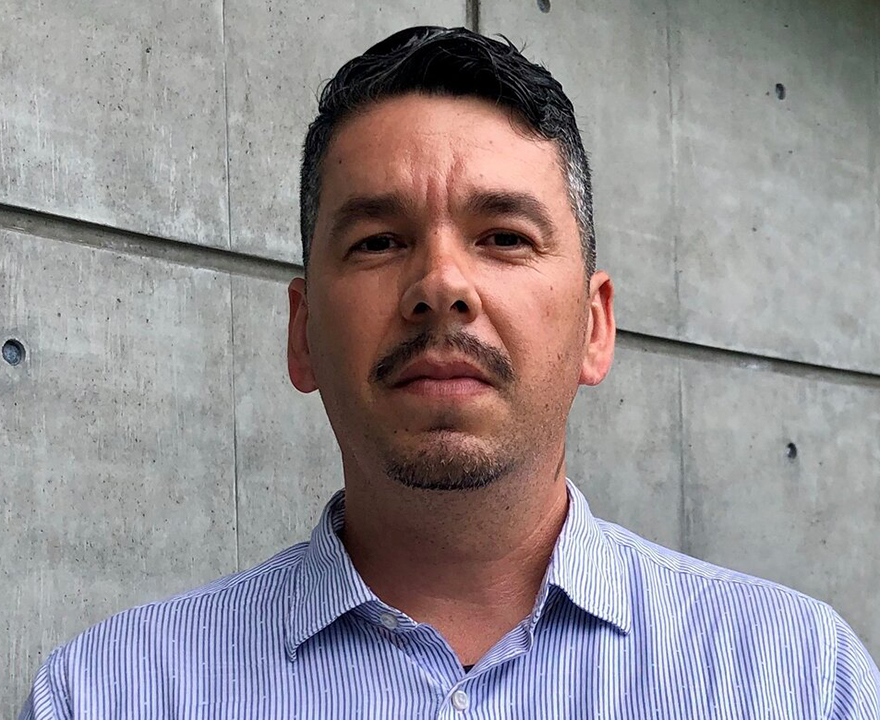Labor history in the form of a grape: A Cesar Chávez Day reflection

Labor history in the form of a grape: A Cesar Chávez Day reflection
- March 31, 2023
- Courtesy of Salvador Zárate, UCI anthropology assistant professor
-----
Should I buy grapes?
A simple enough question. In the mid-1960s, however, this question had significant political implications. In the Central Valley, farm workers were on strike battling wage discrimination and exploitative working conditions in the fields. Farm workers refused to pick grapes and they urged the average American to stop buying grapes at the grocery store. On Easter Sunday 1966, in a move that would garner significant national media attention, farm worker organizer Cesar Chávez ended a 300-mile pilgrimage from Delano to the state capital, where he was met by 10,000 protestors.
The story of the Delano grape strike and boycott, as it came to be known, begins, in many ways, with Larry Itlong, leader of the Filipinx labor union Agricultural Workers Organizing Committee, inviting Chávez and fellow organizer Dolores Huerta, who represented the primarily Latinx National Farm Workers Association, to join their strikes against agribusiness in the Central Valley. Together they formed the UFWOC (later to be named the United Farm Workers) and organized against a California agriculture industry bent on exploiting Black, Latinx, and Asian workers to increase profits. What they faced was years of concerted intimidation, strike breaking, and local law enforcement that retaliated against strikers through physical violence and jailing. The result, like many of us learned in elementary school, was that the UFW succeeded at turning the image of the grape against California agribusiness to win important rights and protections for farm workers, which included healthcare, pesticide protection, and wage increases.
Since 2014, the country has observed the 31st of March to celebrate Cesar Chávez, who tirelessly fought for farm worker rights until his passing in 1993. The power of his legacy, however, lives on. It belongs to strikers advocating for dignity, fair wages, and safe labor conditions, to activists organizing communities against ongoing forms of injustice, from housing to environmental degradation, to the countless worker communities across the country, who are often the least visible and most vulnerable, fighting tooth and nail for their own rights while fulfilling the needs of the greater population—this has been particularly true since the outset of the COVID-19 pandemic.
These are not struggles disconnected from our lives today; they do not only matter elsewhere, beyond our university. Consider how farm worker communities pick the food that makes its way to our dining halls, the academic workers who facilitate learning in the classroom, the janitorial workers who keep campus clean (including faculty offices like my own), the landscapers who shift earth to carve sites of ecological respite for all of us to enjoy. These various efforts make our time at the university pleasant, our learning possible.
This day is also about acknowledging the work that many UC Irvine students, particularly first-generation working-class students of color, and their families undertake to make higher education a reality when higher education is getting more, not less expensive every year.
As a faculty member in the department of anthropology, I am honored to write this reflection on Cesar Chávez Day, in part because I am also a proud UC Irvine undergraduate alumnus (class of 2007). In fact, when I was an undergrad, I was fortunate to take a class with pioneering labor historian of Orange County professor emeritus Gilbert Gonzalez, who among other things, taught us about Chávez but also a lot more on the various worker histories that are less known but no less important. These were labor histories that often fell outside of the canon of traditional labor organizing history.
Professor Gonzalez, I remember, opened the very first class I took in the Chicano/Latino Studies Program by saying that everything about the labor history of Mexican-American and Chicanx communities he learned growing up, he learned around the kitchen table. This stuck with me. It was not necessarily an indictment of the failure of educational systems to teach these histories (though it wasn’t not that), it was meant to have us understand that our parents as workers are grand historical actors.
From then on, I found the words to embrace all that my father, an ex-bracero and residential gardener, and my mother, who often cleaned the houses he landscaped, were within the context of US labor. This lesson, which happened in the first five-minutes of his class, made sense to me in the context of often going to my morning Humanities Core lectures (I wasn’t always in the social sciences) then rushing off campus to join my father to landscape homes in and around Irvine. I was a student who worked and I knew that Professor Gonzalez saw me, supported me. Ultimately, the lessons he taught his students and me now form the commitment that shapes my own labor at UCI and benefits the experiences of all the students who take my classes.
Like I said, Cesar Chávez Day holds a legacy greater than the name the day bears. This is my way to use this institutional space meant to acknowledge Cesar Chávez as a way to say thank you to Professor Gonzalez, who did a different kind of organizing in a different kind of space—the classroom. I think Cesar Chávez would be okay with that.
Salvador Zárate is an assistant professor of anthropology at UCI. He earned his bachelor’s at UC Irvine and Ph.D. in ethnic studies at UC San Diego.
-----
Would you like to get more involved with the social sciences? Email us at communications@socsci.uci.edu to connect.
Share on:


